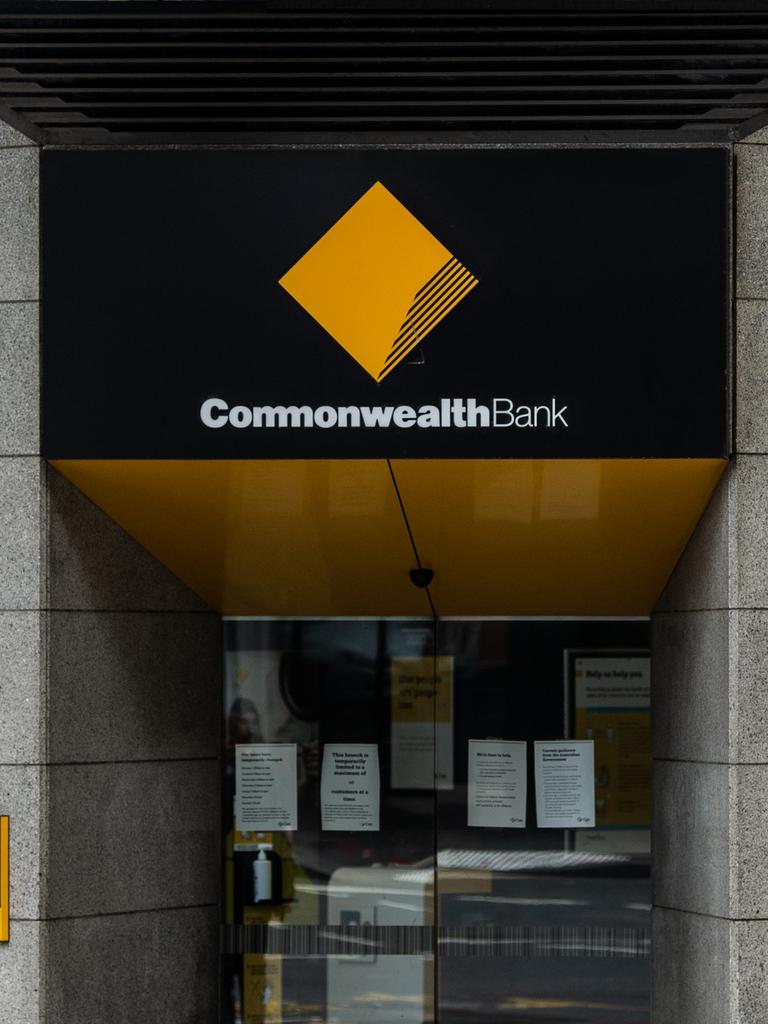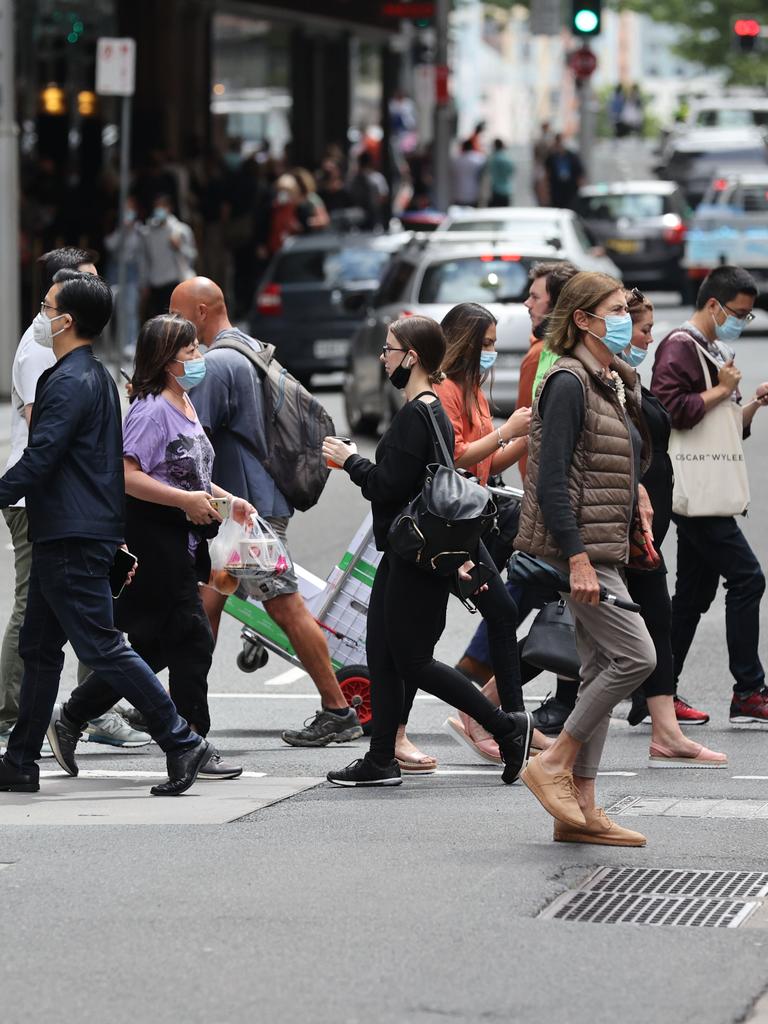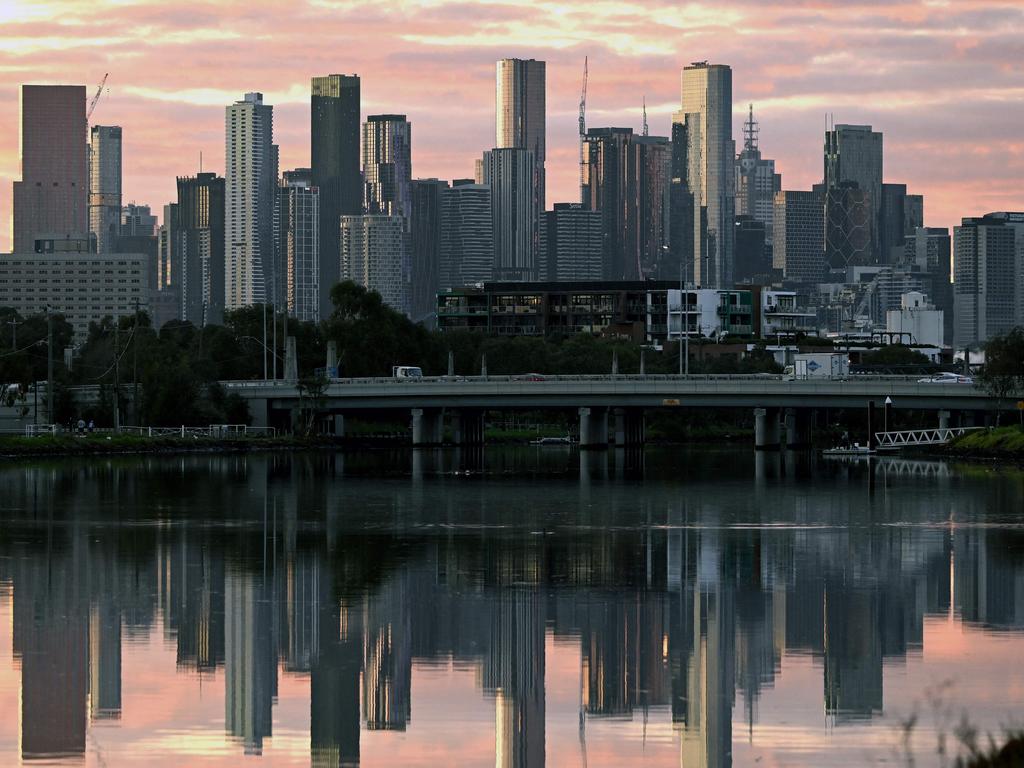Proof Sydney is ‘broken’ as businesses scale back office spaces
Calls for Sydneysiders to return to the office have fallen on deaf ears, with the CBD facing an uncertain future amid claims the city is “broken”.

Sydney’s CBD is facing an uncertain future, with demand for city-centric office spaces still not recovering to post-Covid levels.
Repeated calls for Aussies to return to the office appear to have fallen on deaf ears, leading to an increasing number of businesses making the decision to downsize their CBD offices or give up their leases completely.
The Commonwealth Bank is one of the major businesses who have decided to ditch their long-time CBD office space, with the Australian Financial Review reporting the company is set to leave its space at Darling Park Tower 1 this year and relinquish two floors of offices at Darling Square next year.
It also reported that Westpac will relinquish nine floors at its Kent St office, with KPMG and Lendlease vacating a floor each at Barangaroo Tower 3.


Recent insights from real estate firm JLL found Sydney’s CBD has an office vacancy rate of more than 14 per cent.
Angus Kidman, money expert at Finder, told news.com.au that an increase in office vacancies could have a big flow on effect for the CBD area.
“Decreased demand for office space would lead to a drop in rental income, and ultimately property values across the city,” he said.
“The urban economy heavily relies on office workers commuting into the city. Cafes, restaurants and retailers have already seen foot traffic shrink.”
Mr Kidman said the pandemic-induced hybrid approach to working means that many employees are reluctant to return to going back to the office full time.
“Employers embracing this new flexible working arrangement are now grappling with empty office space, leading to vacancies across the CBD,” he said.
While it is understandable that companies don’t want to see the office spaces they are paying for go unused, Mr Kidman warned employers against trying to force people back into the office with mandates.
A new Finder survey of more than 600 Australians found that one in four would leave their job if their employer forced them to return to the office full time.
Gen Z and Millennial workers were most likely to say they would quit their job if they could no longer work remotely, with Gen X and Baby Boomers less likely to take that route.
“The reality is that in a tight labour market, employers need to tread carefully with mandates. Staff who value flexibility will leave if they can’t see a clear justification for returning to the office,” Mr Kidman said.
“The bottom line is we don’t know what the CBD will look like a year from now, but a full return to pre-pandemic crowds seems unlikely. That will limit the extent to which landlords can raise rents.”

Sydney ‘broken’ as companies consider other options
There is also another major issue facing Sydney that is seeing major companies ditch the iconic city and take their business elsewhere.
While vacancy rates for office spaces may be high, space in Sydney warehouses are not.
The Transport, Postal and Warehousing sector is dominating floorspace leases, with Sydney’s average vacancy at a record low of 0.2 per cent.
This means many Sydney occupiers are having to settle for less space and secondary buildings, while also paying increased rental prices.
A new report from real estate company CBRE found Sydney recently experienced the lowest quarterly uptake of floorspace in the industrial sector in the past 10 years.
Record low vacancy rates has also caused rental prices to soar across Sydney, with prime rents rising by 38 per cent over the past year to a whopping $215 per sqm.
In comparison, Melbourne’s prime rental rates are sitting at $119 per sqm, with a 1.1 per cent vacancy rate.
“The downward trend in gross take-up since 2020 has continued over 1Q23 due to the chronic shortage of space in the market. Take-up this quarter equated to 5 per cent of total take-up in 2022,” the report stated.
“Occupiers who are looking to expand will be challenged over the next 3-6 months with near zero vacancy and limited new supply in the market.”

As a result of these ongoing issues, major companies like global logistics and supply chain business, CEVA Logistics, are considering relocating big sections of their supply chains out of Sydney.
Paul Ellul, CEVA general manager of commercial, property and security ANZ, branded Sydney’s current system as “broken”.
“As a major up taker of industrial property for both our 3PL and Vehicle Logistics businesses the biggest problem we have is in Australia is Sydney,” he wrote on LinkedIn.
“The development approval process is broken and needs urgent attention. The planning delays are resulting project delivery timelines well in excess of any other city in Australia that we have experienced.”
Mr Ellul said CEVA was in “constant discussions” weighing up the cost to continue operations in Sydney or pack up and move to Melbourne or Brisbane.
“We have seen huge rental and land valuation increases over the last 24 months which are now also flowing down to things like significant Land Tax and Council rate increases,” he said.
“The NSW government needs to take action to improve the planning processes otherwise the cost to serve will continue to rise and future opportunities will be lost to Sydney in favour of other eastern seaboard locations.”






